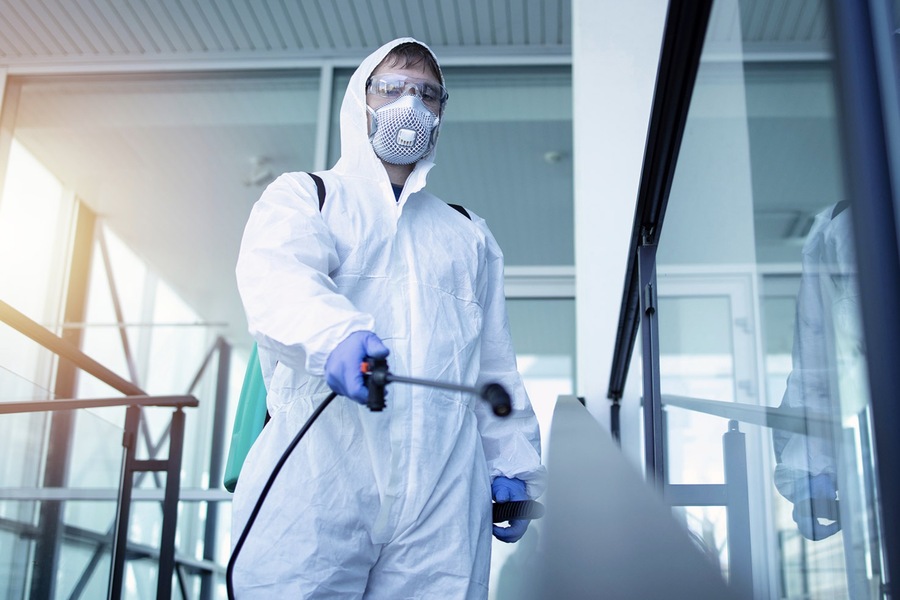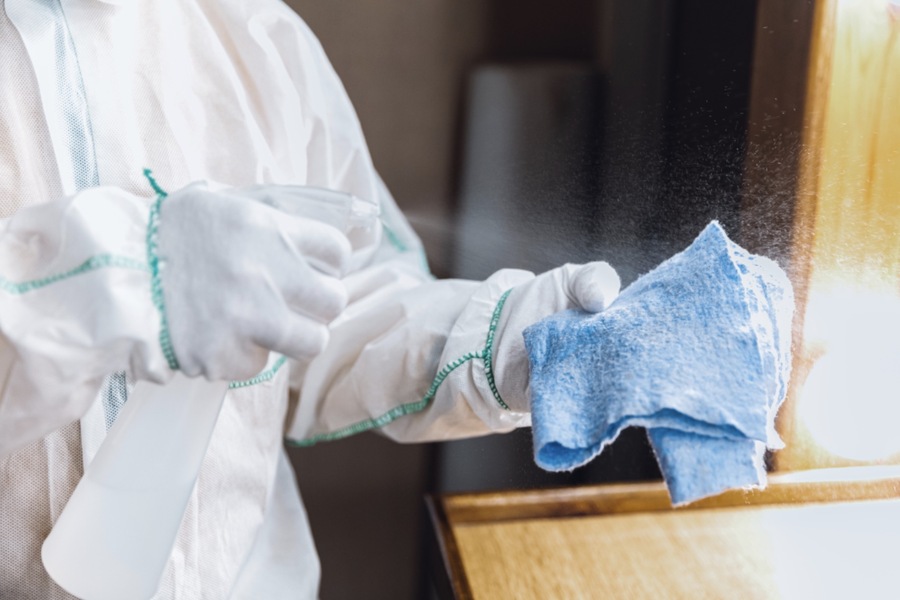The COVID-19 epidemic has significantly impacted society, including personal hygiene and cleanliness practices. The pandemic has raised awareness and prompted stricter cleaning regulations across multiple businesses in the UAE and many other world regions. This article looks at how COVID-19 has affected cleaning procedures in the United Arab Emirates, the rise in demand for sanitizers and disinfectants, and the long-term effects on the cleaning sector.
Page Content
Pre-Epidemic Hygiene Procedures
Before the arrival of COVID-19, cleaning procedures in UAE, especially in public areas, were usually concentrated on upholding a specific standard of cleanliness for hygienic and legal purposes. While hygiene was always a priority in sectors like healthcare and food service, other industries, such as retail and hospitality, adhered to basic cleaning protocols that were sufficient to keep visible dirt and grime at bay.
However, the pandemic brought a new urgency to the concept of cleanliness. The realization that surfaces could harbor the SARS-CoV-2 virus for extended periods highlighted the need for more rigorous and frequent cleaning, especially in high-traffic areas. As a result, businesses and public institutions were forced to re-evaluate their cleaning strategies and adopt measures more aligned with the realities of a highly contagious virus.

Increased Demand for Disinfectants and Sanitizers
One of the pandemic’s most immediate impacts was the surge in demand for disinfectants and sanitizers. In the early days of COVID-19, these products became essential tools in the fight against the virus. Individuals and businesses sought high-quality disinfectants that successfully eradicated the virus from hands and surfaces. The UAE government swiftly ensured that only disinfectants effective against SARS-CoV-2 were on the market by releasing guidelines on the kinds of disinfectants that should be used.
Due to the growing demand for cleaning products in UAE, the sector saw a surge in innovation. Manufacturers began developing new formulations that offered longer-lasting protection or were more environmentally friendly. For example, there was a rise in the use of alcohol-based hand sanitizers with moisturizing properties to prevent skin dryness, a common side effect of frequent use. Additionally, some companies introduced disinfectants that could remain active on surfaces for extended periods, providing ongoing protection against the virus.
Changes in Cleaning Protocols
In response to the pandemic, businesses and public institutions in the UAE implemented more stringent cleaning protocols. These changes were particularly noticeable in sectors such as hospitality, retail, and transportation, where the risk of virus transmission was higher due to the large number of people passing through these spaces.
For example, hotels significantly increased the frequency of cleaning in guest rooms and common areas. High-touch surfaces such as door handles, elevator buttons, and light switches were disinfected multiple times a day, and many establishments adopted contactless check-in and check-out procedures to minimize physical interactions. Similar measures were taken in shopping malls, where regular disinfection of escalators, restrooms, and food courts became the norm.
Public transportation also saw major changes in cleaning practices. Buses, trains, and metro stations in cities like Dubai and Abu Dhabi were subjected to daily deep cleaning and disinfection. Transport authorities introduced new guidelines that required using specific disinfectants and mandated the cleaning of vehicles at the end of each shift. These measures were complemented by the installation of hand sanitizing stations and the enforcement of mask-wearing for passengers.

Long-Term Implications for the Cleaning Industry
The pandemic’s alterations will probably impact the UAE’s cleaning sector in the long term. The increased emphasis on hygiene will likely last because the nation is still recuperating from COVID-19. The growing awareness among consumers and businesses of the importance of hygiene in halting the spread of disease may lead to a continuous demand for superior cleaning products and services.
A potential long-term trend is the ongoing use of state-of-the-art cleaning technology. The pandemic has accelerated the adoption of technologies that effectively eradicate bacteria and viruses, such as UV-C laser disinfection and electrostatic sprayers. These technologies might become indispensable to cleaning procedures as companies want to save labor expenses while maintaining high hygiene standards.
Another likely outcome is the increased emphasis on sustainable cleaning practices. The pandemic has raised awareness of the environmental impact of excessive use of chemicals and single-use cleaning products. Because of this, there is rising interest in environmentally friendly substitutes that offer the same degree of disinfection without endangering the ecosystem. This can encourage creating and using fresh, environmentally friendly cleaning products in the UAE market.
In Summary
In the UAE, the COVID-19 outbreak has drastically altered our attitude to hygiene and cleaning. A permanent shift in industry habits is indicated by the rising demand for disinfectants and sanitizers, the adoption of stricter cleaning processes, and new cleaning technology. Upholding these strict guidelines will be essential as the nation develops to guarantee public health and safety—not only in COVID-19 but also in averting other infectious disease outbreaks. The lessons learned during the pandemic will continue to shape the cleaning industry in the UAE, driving innovation and setting new benchmarks for cleanliness and hygiene.

Skateboarder, feminist, DJ, hand letterer and HTML & CSS lover. Doing at the sweet spot between beauty and function to create great work for living breathing human beings. I’m fueled by craft beer, hip-hop and tortilla chips.